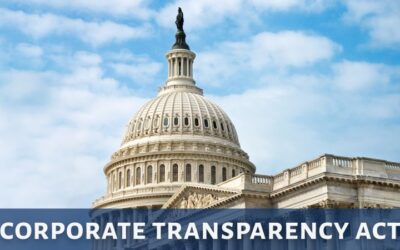There are several new labor & employment laws that have taken effect as of January 1 this year. It’s always important to be aware of how such changes may impact your organization.
Here are the highlights:
SB 1383 – This bill represents a significant change in existing California law. It expands the California Family Rights Act (CFRA) employer coverage to include all employers with 5 or more employees. Previously, the CFRA’s leave requirement applied only to employers with 50 or more employees. Small businesses will now have to provide 12 weeks of job-protected leave within a 12-month period so that employees may tend to their own or a family member’s serious health condition or for the birth, adoption or foster placement of a child as of January 1, 2020.
NOTE: SB 1383 expands the definition of “family members” beyond what is covered under the federal Family and Medical Leave Act (FMLA). This will impact larger employers who will have to administer CFRA and FMLA separately in some cases. All employers need to be prepared to revise and/or implement compliant policies and practices at the beginning of the new year.
AB 685 – requires employers that receive notice of a potential COVID-19 exposure at the workplace to undertake certain recording and reporting efforts, including providing notice to all employees at the worksite within the infectious period who may have been exposed to COVID-19 within 1 business day after employers are notified of the exposure. AB 685 also requires employers to notify their local public health department if an “outbreak” occurs at the worksite. The bill also increases Cal/OSHA’s enforcement authority related to COVID-19. AB 685 takes effect January 1, 2021
AB 2992 – expands the prohibition on discrimination and retaliation against employees that are victims of crime or abuse. AB 2992 now prohibits employers from discharging or otherwise discriminating against any employee who was the victim of any crime that caused physical or mental injury, including a threat of physical injury. Previously, California law prohibited employers from discharging or discriminating against employees who were victims of domestic abuse or sexual assault and need to take time off of work to obtain judicial relief.
AB 1947 – extends the time in which an employee can file a complaint of discrimination or retaliation with the California Division of Labor Standards Enforcement (DLSE) for the violation of any law enforced by the DLSE from six months to 1 year.
AB 1512 – an industry-specific rest break bill which authorizes employers that are registered private patrol operators to require security guards to remain on premises during rest periods and on call during the rest periods. If the security guard is interrupted during the rest period with work, they must be permitted to restart the rest period as soon as practicable. If the security guard is not permitted to take an uninterrupted rest period of at least 10 minutes for every 4 hours worked or major fraction thereof, the employer must pay the security guard one hour of pay at the security guard’s regular rate.
SB 973 – This law advances California’s efforts to combat gender and racial pay disparity by requiring private employers with 100 or more employees and required to file an annual EEO-1 under federal law to submit reports to the Department of Fair Employment & Housing that detail information about employees’ pay rates, race, ethnicity and gender in various job categories on or before March 31, 2021.
Reminder: Per previously signed legislation, on January 1, 2021, the minimum wage in California is increasing to $14.00 per hour for employers with 26 or more employees. Minimum wage for employers with 25 or fewer employees will increase to $13.00 per hour.




